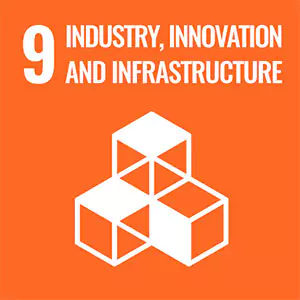Nano kopia
Nanotechnology is an exciting field within science and technology related to materials and device structures with characteristic dimensions in the nanometer regime. The labour market in this emerging area is growing significantly, and nanotechnology is penetrating several technology sectors.

Nanotechnology at KTH
From a solid foundation in basic materials science, the programme gives the students a deep understanding of size-dependent materials, device and system properties, and also how these properties can be tailored by a controlled manipulation of the microstructure down to the atomic or molecular level. Furthermore, it provides comprehensive knowledge of various nano-scale devices and their applications and fabrication methods. Special emphasis is paid to the understanding and usage of advanced characterisation methods to assess detailed materials and device properties. The programme is closely linked to the extensive research activities at the KTH Electrum laboratory, a world-leading resource for the education, research and product development related to micro and nanofabrication.
The final semester degree project gives students an opportunity to carry out an in-depth study within their specialisation and to demonstrate the skills acquired during their studies. It can be carried out at an academic or industrial institution, needs to be relevant to the main field of study for the master’s degree, and is scheduled for the last term of the programme.
This is a two year programme (120 ECTS credits) given in English. Graduates are awarded the degree of Master of Science. The programme is given mainly at KTH Campus in Stockholm by the School of Electrical Engineering and Computer Science (at KTH).
Courses in the master's programme in Nanotechnology
Students
Find out what students from the programme think about their time at KTH.
More interviews with KTH students
Career
The master's programme in Nanotechnology prepares you for a career in a wide range of areas in materials science, semiconductor, microsystems, and applied physics. Applications related to, for example, the Internet of Things and life sciences offer plenty of interesting job opportunities in high tech companies. The programme focuses on advanced nanoscale characterisation tools, and the unique experience of a state-of-the-art academic cleanroom environment will make you very competitive on the job market. Graduates with a specialisation in nanoscale materials will be well equipped to handle the sustainability challenges of modern society. Nanotechnology is also a major academic research field, and the programme provides a solid foundation for graduate studies at highly ranked universities, including KTH.
Interviews with graduates from Nanotechnology
Sustainable development
Graduates from KTH have the knowledge and tools for moving society in a more sustainable direction, as sustainable development is an integral part of all programmes. Nanotechnology as a subject area has a strong inherent connection to sustainability aspects in that it represents a technological leap based on scientific innovations towards increasingly energy-efficient and high-performance components and systems, improved IT solutions (for example allowing for reduced travelling), while allowing for a general and more resource-efficient and sustainable energy management, environment and infrastructure. In this way, many of the program's courses have an implicit link to sustainable development, and many courses also have it explicitly stated in their learning objectives. As such, the programme addresses many environmental and societal challenges. Three key sustainable development goals that can be considered particularly relevant by the master's programme in Nanotechnology are:



Good Health and Well-being: The medical application of Nanotechnology, Nanomedicine, allows for new diagnostic tools and therapy schemes, for example by virtue of advanced drug delivery systems or in vivo imaging. Nanotechnology is also instrumental in the down-scaling of lab-on-a-chip systems for high-efficiency, large throughput medical diagnosis. Finally, it is also an important ingredient in the development of Internet-of-Things (IoT) solutions that can allow for automatic health-monitoring or self-diagnosis/treatments.
Decent Work and Economic Growth: Automation and advanced manufacturing methods greatly improve working conditions and business margins, and rely on ever-more sophisticated computing, communication and sensing systems. These developments take account of new materials, device and integration schemes that are driven by innovations in Nanoelectronics and Nanophotonics.
Industry, Innovation and Infrastructure: Nanotechnology is currently one of the fastest-growing industry sectors worldwide and has tremendous innovation potential. The programme thereby establishes and strengthens the knowledge base for education and future business opportunities in rapidly moving “high-tech” fields of clear benefit to society at large.
Faculty and research
Due to the cross-disciplinary character of the nanotechnology program, it involves faculty, courses and resources from several schools and research departments at KTH:
- School of Electrical Engineering and Computer Science: Department of Electrical Engineering
- School of Engineering Sciences: Department of Applied Physics
- School of Electrical Engineering: Department of Micro and Nanosystems
- School of Biotechnology: Division of Industrial Biotechnology
Of specific interest for the program is also the which is a world-class nanotechnology research facility located in Kista, some 10 km north of the main campus.



